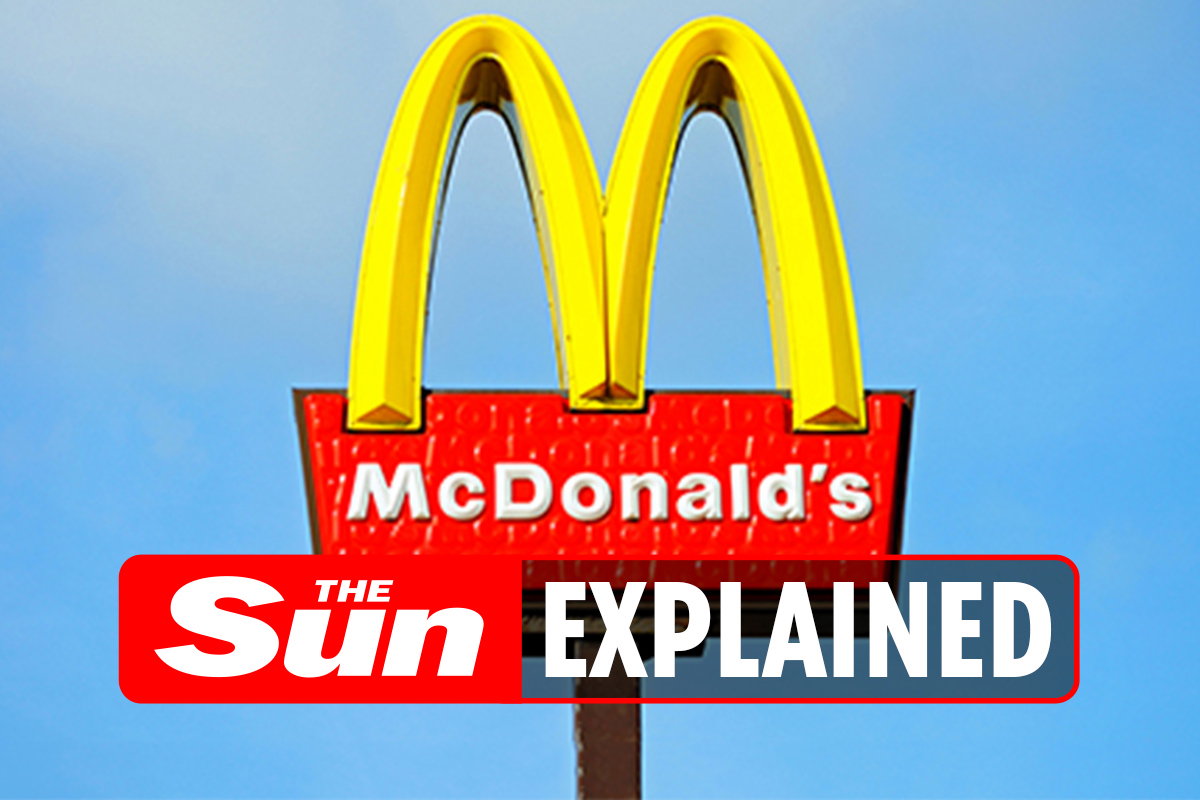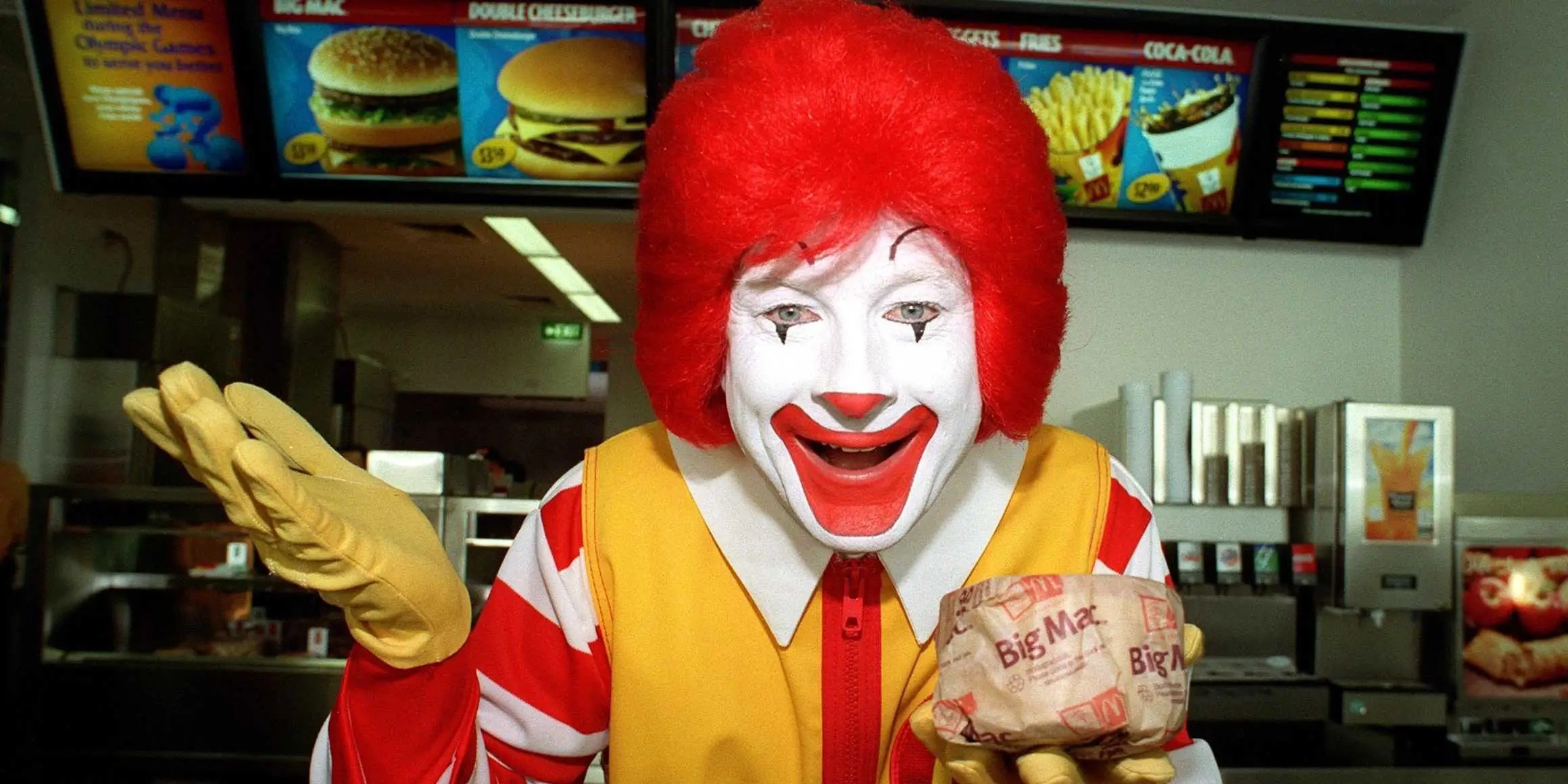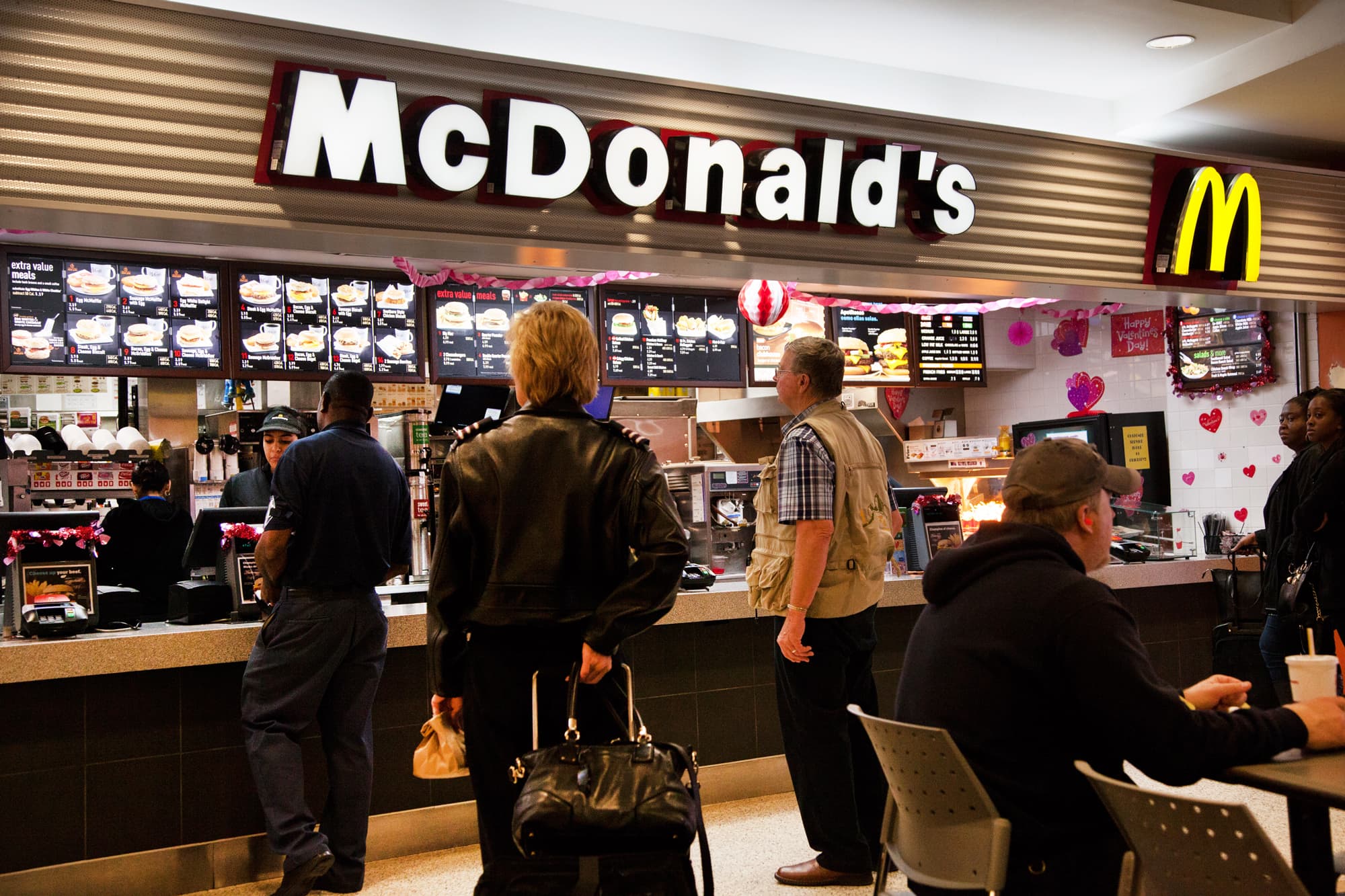How much is McDonalds worth encapsulates the monetary value of the global fast-food giant, encompassing its assets, revenue, and market capitalization. Like a colossal financial iceberg, it represents just the tip of the value that McDonalds holds for its stakeholders, shareholders, and the fast-food industry as a whole.
Its significance lies not only in its sheer size but also in its impact on global commerce and consumer habits. Historically, McDonalds has been a pioneer in the standardization and mass production of fast food, revolutionizing the dining landscape and influencing countless businesses worldwide.
Delving into the intricate details of how much McDonalds is worth, this article will explore the company's financial performance, its brand recognition, and its strategic positioning within the ever-evolving food and beverage industry.
How Much Is McDonalds Worth
Understanding the multifaceted value of McDonalds requires examining key aspects that encompass its financial strength, brand equity, and strategic positioning. These include:
- Revenue
- Profit
- Assets
- Market Capitalization
- Brand Recognition
- Global Presence
- Customer Loyalty
- Franchise Model
- Innovation
- Sustainability
These aspects are interconnected, contributing to McDonalds' overall worth. Its substantial revenue and profit margins provide a solid financial foundation, while its iconic brand recognition and global presence enhance its value. The franchise model enables rapid expansion and local adaptation, and ongoing innovation ensures continued relevance in the fast-changing food industry. Moreover, McDonalds' commitment to sustainability reflects its recognition of the importance of environmental and social responsibility.
Revenue
Revenue plays a critical role in determining how much McDonalds is worth. It represents the total amount of income generated from the sale of goods and services, and is a key indicator of a company's financial health. McDonalds' revenue streams primarily come from the sale of food and beverages through its vast network of restaurants worldwide. Higher revenue generally leads to increased profitability, which in turn positively impacts the company's overall valuation.
For instance, in 2022, McDonalds reported total revenue of $23.2 billion, a significant increase from the previous year. This growth was attributed to increased sales across all segments, particularly in the United States and international markets. The company's strong revenue performance contributed to its overall market capitalization, which exceeded $190 billion at the end of the year.
Understanding the connection between revenue and McDonalds' worth is crucial for investors and financial analysts. It provides insights into the company's ability to generate income, its market share, and its potential for future growth. Moreover, revenue analysis can help identify trends and opportunities within the fast-food industry, enabling businesses and investors to make informed decisions.
Profit
Profit, the lifeblood of any organization, is inextricably linked to the determination of "how much is McDonalds worth." It represents the financial surplus generated from a company's operations, serving as a barometer of its financial health and overall performance.
Profit plays a pivotal role in assessing McDonalds' worth due to its direct impact on the company's value. Higher profit margins generally translate into increased shareholder returns, making it a critical component in determining the company's market capitalization. For instance, in 2022, McDonalds reported a net income of $6.2 billion, a significant increase compared to the previous year. This robust profit performance contributed to the company's overall worth, which surpassed $190 billion at the end of the year.
Understanding the relationship between profit and McDonalds' worth is crucial for investors and financial analysts. It provides insights into the company's operational efficiency, cost management, and competitive advantage. Moreover, analyzing profit trends can help identify potential growth opportunities and risks, enabling informed decision-making and strategic planning.
Assets
Assets occupy a central position in determining "how much is McDonalds worth." They represent the tangible and intangible resources owned or controlled by the company, serving as a foundation for its operations and long-term value.
- Property and Equipment
This includes physical assets such as restaurants, kitchens, and distribution centers. McDonalds' vast network of properties contributes significantly to its overall worth, providing a platform for revenue generation and customer engagement.
- Inventory
Food, beverages, and other supplies held for sale constitute McDonalds' inventory. Effective inventory management is crucial for maintaining product availability, preventing waste, and optimizing profit margins.
- Cash and Equivalents
Liquid assets such as cash, short-term investments, and accounts receivable provide McDonalds with financial flexibility. These funds can be used for expansion, debt repayment, or unforeseen circumstances.
- Intangible Assets
Brand recognition, trademarks, and intellectual property are valuable intangible assets for McDonalds. They contribute to the company's competitive advantage and long-term profitability.
Collectively, these assets form a substantial portion of McDonalds' worth. Their value is influenced by factors such as market conditions, consumer preferences, and technological advancements. Understanding the composition and value of McDonalds' assets is essential for investors, analysts, and stakeholders seeking to assess the company's financial health and future prospects.
Market Capitalization
Market capitalization, often abbreviated as "market cap," plays a pivotal role in determining "how much is McDonalds worth." It represents the total value of a company's outstanding shares, calculated by multiplying the current share price by the number of shares issued. Market cap serves as a key indicator of a company's size, financial strength, and overall worth in the eyes of investors.
The connection between market cap and "how much is McDonalds worth" is direct and substantial. A higher market cap generally signifies a higher overall value for the company. This is because a higher market cap indicates that investors are willing to pay a premium for each share of the company's stock, reflecting their confidence in its future prospects and earning potential. Conversely, a lower market cap may indicate that investors are less optimistic about the company's future, leading to a lower overall valuation.
For instance, as of March 2023, McDonalds' market cap stood at approximately $197 billion. This means that the total value of all outstanding shares of McDonalds was $197 billion. This substantial market cap is a reflection of the company's strong brand recognition, global presence, and consistent financial performance, which have made it a favorite among investors.
Understanding the relationship between market cap and "how much is McDonalds worth" is crucial for investors, analysts, and stakeholders seeking to assess the company's financial health and future prospects. It provides insights into the company's size, growth potential, and competitive advantage within the industry.
Brand Recognition
Brand recognition, a cornerstone of "how much is McDonalds worth," is the extent to which consumers are familiar with and can identify a brand. It encompasses the perception, awareness, and recall of a brand in the minds of consumers, directly impacting the company's value and overall worth.
- Brand Awareness
This refers to the extent to which consumers are familiar with McDonalds. It is the foundation of brand recognition and influences consumer behavior and purchase decisions.
- Brand Recall
Brand recall measures how easily and quickly consumers can retrieve McDonalds' brand from memory when prompted with a product category or related cue. Strong brand recall is crucial for top-of-mind awareness and purchase consideration.
- Brand Image
Brand image encompasses the perception and associations that consumers have towards McDonalds. It is shaped by various factors, including advertising, customer experiences, and media coverage, and influences consumer loyalty and overall brand value.
- Brand Equity
Brand equity represents the value premium that consumers are willing to pay for McDonalds' products and services due to its strong brand recognition and positive brand image. It is a key driver of financial performance and long-term profitability.
In conclusion, brand recognition is a multifaceted concept that plays a vital role in determining "how much is McDonalds worth." It encompasses various dimensions, including brand awareness, brand recall, brand image, and brand equity. By establishing a strong brand presence, McDonalds has built a loyal customer base, increased its market share, and enhanced its overall value and worth in the eyes of consumers and investors alike.
Global Presence
The far-reaching global presence of McDonalds is an inextricable component in the determination of "how much is McDonalds worth." Its vast network of restaurants across the globe serves as a testament to its brand recognition, consumer loyalty, and financial prowess.
The causal relationship between global presence and McDonalds' worth is multifaceted. Firstly, a broader global footprint leads to increased revenue streams. Each new restaurant contributes to the company's overall sales and profitability. Secondly, global expansion enhances brand awareness and recognition, which translates into higher brand equity and customer loyalty. As McDonalds becomes more ubiquitous, it becomes more ingrained in the minds of consumers worldwide, strengthening its overall brand value.
Real-life examples abound that illustrate the impact of global presence on McDonalds' worth. For instance, the company's entry into the Chinese market in 1990 marked a significant turning point in its global expansion strategy. China's massive population and growing middle class presented a lucrative opportunity for McDonalds, and the company's rapid growth in the country has been a major contributor to its overall financial success.
Understanding the practical applications of this connection is crucial for businesses seeking to enhance their global presence and increase their worth. By establishing a strong global presence, companies can access new markets, diversify their revenue streams, and build a stronger brand reputation. This, in turn, can lead to increased profitability, higher market capitalization, and ultimately, greater overall value.
Customer Loyalty
Customer loyalty plays a pivotal role in determining "how much is McDonalds worth." Loyal customers are more likely to make repeat purchases, recommend the brand to others, and provide valuable feedback. This, in turn, leads to increased revenue, reduced marketing costs, and enhanced brand reputation, all of which contribute to the overall value and worth of McDonalds.
The connection between customer loyalty and "how much is McDonalds worth" is evident in real-life examples. The company's iconic loyalty program, MyMcDonald's Rewards, has been instrumental in fostering customer loyalty and driving repeat visits. By offering personalized rewards, exclusive promotions, and a sense of community, the program has helped McDonalds retain existing customers and attract new ones, contributing significantly to its overall worth.
Understanding the practical applications of this connection is crucial for businesses seeking to enhance customer loyalty and increase their overall value. By implementing loyalty programs, providing excellent customer service, and building strong relationships with customers, businesses can create a loyal customer base that will drive long-term profitability and growth. This, in turn, will positively impact their financial performance, market capitalization, and overall worth in the eyes of investors and stakeholders alike.
In summary, customer loyalty is a critical component of "how much is McDonalds worth." By fostering loyalty among its customers, McDonalds has built a strong foundation for its business, ensuring continued success and growth. The lessons learned from McDonalds' customer loyalty strategies can be applied by businesses of all sizes to enhance their own customer relationships, increase their worth, and achieve long-term sustainability.
Franchise Model
The franchise model is a crucial aspect of "how much is McDonalds worth" because it enables the company to expand rapidly and efficiently, leveraging the resources and expertise of franchisees while maintaining control over brand standards and quality. This unique business model contributes significantly to McDonalds' overall value and worth.
- Expansion and Growth
The franchise model allows McDonalds to expand its presence into new markets and regions quickly and cost-effectively. Franchisees are responsible for the initial investment and operating costs, reducing McDonalds' capital expenditures and risks associated with expansion.
- Brand Consistency
Despite being operated by independent franchisees, McDonalds maintains strict brand standards and quality control across all its franchised restaurants. This ensures a consistent customer experience and safeguards the brand's reputation and value.
- Revenue Sharing
McDonalds generates revenue from franchisees through various fees, including franchise fees, royalties, and advertising contributions. This revenue stream contributes significantly to the company's overall profitability and worth.
- Franchisee Investment
Franchisees have a vested interest in the success of the McDonalds brand. Their financial investment and entrepreneurial spirit contribute to the overall value of the company by driving innovation, customer satisfaction, and long-term growth.
In conclusion, the franchise model plays a pivotal role in determining "how much is McDonalds worth." It facilitates rapid expansion, ensures brand consistency, generates additional revenue streams, and aligns the interests of franchisees with the overall success of the McDonalds brand. Understanding the multifaceted components and implications of the franchise model provides insights into the company's financial strength, operational efficiency, and long-term value.
Innovation
Innovation is a driving force behind "how much is McDonalds worth." By continuously introducing new products, services, and technologies, McDonalds has maintained its competitive edge, increased customer satisfaction, and enhanced its overall value and worth.
Innovation plays a multifaceted role in determining "how much is McDonalds worth." Firstly, it enhances revenue streams. New products and services, such as the introduction of the McCaf line or mobile ordering, have expanded McDonalds' offerings and attracted new customers, leading to increased sales and profitability. Secondly, innovation improves operational efficiency. Technological advancements, such as self-service kiosks or automated order taking, have streamlined operations, reduced costs, and increased customer convenience, contributing to the company's overall worth.
Real-life examples abound that demonstrate the impact of innovation on McDonalds' worth. The company's early adoption of drive-through service in the 1970s revolutionized the fast-food industry and became a key factor in its success. More recently, McDonalds' investment in mobile ordering and digital payment systems has enhanced customer convenience and loyalty, further increasing its value and worth.
Understanding the practical applications of this connection is crucial for businesses seeking to enhance their value and worth through innovation. By investing in research and development, implementing new technologies, and fostering a culture of innovation, businesses can create new products and services that meet evolving customer needs, improve operational efficiency, and drive long-term growth. This, in turn, will positively impact their financial performance, market capitalization, and overall worth in the eyes of investors and stakeholders alike.
Sustainability
The relationship between sustainability and "how much is McDonalds worth" is multifaceted, with sustainability playing a critical role in enhancing the company's value and worth. By adopting sustainable practices, McDonalds can reduce costs, attract environmentally conscious consumers, and enhance its reputation, all of which contribute to its overall worth.
Firstly, sustainability initiatives can lead to cost savings. Reducing energy consumption, waste management, and water usage can lower operating expenses, improving profitability and increasing the company's worth. Secondly, sustainability appeals to an increasing number of consumers who prefer to patronize businesses that align with their values. By demonstrating a commitment to environmental stewardship, McDonalds can attract and retain customers, driving sales and increasing its worth.
Real-life examples showcase the positive impact of sustainability on McDonalds' worth. In 2018, the company announced a comprehensive sustainability plan, "Scale for Good," which included ambitious goals for reducing emissions, waste, and water usage. This plan has not only reduced the company's environmental footprint but has also enhanced its reputation as a responsible corporate citizen, attracting new customers and investors.
Understanding the connection between sustainability and "how much is McDonalds worth" is crucial for businesses seeking to enhance their value and worth. By implementing sustainable practices, businesses can reduce costs, attract environmentally conscious consumers, and enhance their reputation. This, in turn, will positively impact their financial performance, market capitalization, and overall worth in the eyes of investors and stakeholders alike.
In summary, "how much is McDonalds worth" is a complex and multifaceted question, encompassing financial, operational, and intangible factors. Through an in-depth exploration of the company's revenue, profit, assets, market capitalization, and other key performance indicators, this article has shed light on the intricate web of elements that determine McDonalds' overall value and worth.
Two main points stand out. First, McDonalds' financial performance, as reflected in its revenue, profit, and market capitalization, provides a solid foundation for its overall worth. Second, the company's intangible assets, including its brand recognition, global presence, customer loyalty, and commitment to sustainability, play a vital role in enhancing its value and long-term prospects.
Understanding "how much is McDonalds worth" goes beyond mere financial valuation. It underscores the importance of brand equity, customer loyalty, and sustainable practices in driving long-term success and value creation. For businesses of all sizes, the lessons learned from McDonalds' journey can serve as a valuable guide in building a sustainable and profitable enterprise.
Pushing Daisies: Exploring The Cultural Significance Of A Delicate Euphemism
Brad Pitt's Height: Unveiling The True Story Behind His Stature
Rene Russo: A Hollywood Icon's Journey



ncG1vNJzZmitnp64b63MrGpnnJmctrWty6ianpmeqL2ir8SsZZynnWS1sMOMpqycoF2ewG65wp2mp5mcmcBuw86rq6FmmKm6rQ%3D%3D